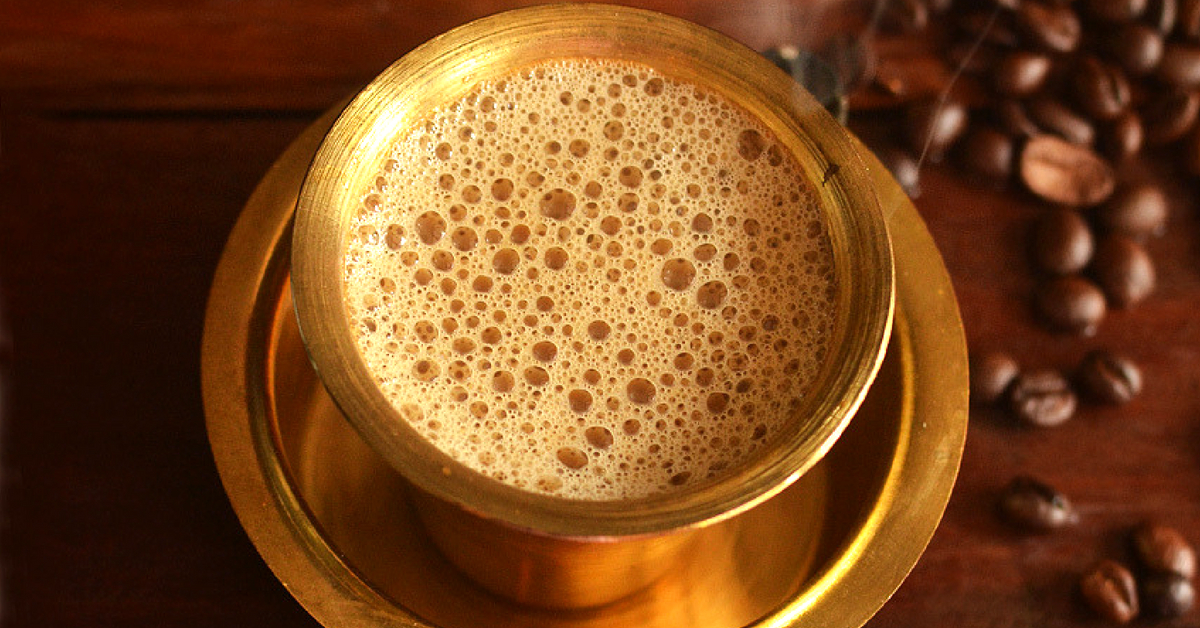India loves its chai, and there is no debate here. However, given the craze and much-publicised love for the beverage (which I’ve personally observed in a lot of my friends), the idea that tea has always been an inherent part of our culture is something that is slightly convoluted.
For the less initiated, the commercial production of tea in India was flagged off by the British East India Company towards the early nineteenth century, in a bid to take down the Chinese monopoly on the commodity.
Originally consumed only by Anglicised Indians, tea wasn’t even a known beverage amidst the ordinary folks in the country until 1950s, when the Tea Board’s advertising campaign proved to be a game-changer for an entire nation, which led to tea seamlessly penetrating its way into Indian households, and becoming an integral part of people’s lives.
On the other hand, it is interesting to note coffee, tea’s strongest contender, which has often elicited numerous debates and discussions over its popularity and consumption, has had an extensive historical trail in the subcontinent.

The tale of how a few beans travelled across the Arabian Sea to reach India and go on to become one of the most widely-loved beverages in the country is a story that I will put on hold, for the time being.
Before I proceed any further, I must admit that my love for coffee took form at a very young age, and this is probably because I am a South Indian and our passion for coffee is quite profound and renowned.
For us, a flask of hot kattan kapi (a native Espresso albeit with lots of sugar or jaggery) was the magical elixir our mothers made, which kept us awake through school and college days when many nights and early mornings were spent in exam preparations.
And then there is the filter coffee, an exquisite man-made creation, which I believe is a concoction worth falling in love with!
I am serious—nothing fixes things better than a piping hot tumbler of aromatic filter coffee!
Now before I go on rambling about how fantastic coffee is (because I swear I could go on forever), let me share this one episode from the summer of 2016 which took me from one end of the country to the other—in a series of seemingly disconnected travel journeys—and made me realise how little I knew about the origins of my favourite beverage.
So it all begins with Chikkamagalur. Classic, isn’t it? A tale about coffee from the very place of its origin in India?
Well, during the time I was visiting this hill station with my friends, plush with its vast expanses of coffee plantations, I was yet to be enlightened with this piece of information. Interestingly, one of the places that we’d jotted down in our itinerary was the mountain range of Baba Budangiri, which also housed an Islamic shrine honouring a local saint, or so I assumed.
The tragedy of that trip was that we got lost somewhere along the way and never quite managed to reach Baba Budangiri or the pilgrimage site and we had no option but to head back home.
Exactly a month later, I happened to visit Arakku Valley, a small hill station in Andhra Pradesh, which is also one of the only places in the state where one can find coffee plantations, and it was here that I learnt the real significance of the little shrine in Chikkamagalur and why Baba Budan is widely revered.
He was the man who was solely responsible in bringing coffee to India, at a time when the illegal export of the commodity or even its beans was decreed an offence punishable by death!
So, this crucial piece of information was bestowed upon me, thanks to an impromptu visit to—where else—a coffee museum in Arakku Valley!
As elaborately narrated at the museum, Baba Budan was a 16th-century saint from Karnataka, who on his way back from a pilgrimage to Mecca, managed to smuggle seven coffee beans under the watchful eyes of the Yemenis and brought these to Mysore.
And do you know how he managed to do this? He strapped seven fertile coffee seeds to his stomach!
We need to remember that this was a very courageous act because smuggling green coffee seeds out of Arabia was a criminal offence at the time and its export in any form (other than a roasted or boiled state) was strictly controlled to prevent germination!
These seeds were planted by Baba Budan himself on the Chandragiri peak in Kadur district of the erstwhile princely state of Mysore and rest is history!
Today, this very hill range is known as Baba Budangiri, quite befittingly christened after the saint, whose love for coffee gave India a valuable treasure worth brewing!
For a person like me, whose obsession with coffee is definitely well articulated by now, this was an overwhelming moment that I would never quite get over, and it took me 24 years and travelling a distance of 1,225 km to uncover this truth and trace the origins of coffee in India.
You may also like: Care for Some ‘Monsooned Malabar’? You’ll Love This Celebrated Coffee!
It gives me immense pleasure to share that two years later, I got the opportunity to not just visit Chikkamagalur once again but also pay homage to Baba Budan at the long-standing shrine—bringing the cycle to an end.
When I look back, the entire episode seems like a surreal experience akin to a game of treasure hunt, except this one gave me a gift that I’d forever be grateful for—the legend and legacy of Baba Budan.
For those whose hearts are consumed by wanderlust, both Chikkamagalur and Arakku Valley are marvellous hill stations that you must consider visiting.
And if you love coffee, then I would only add that you just struck gold!
(Edited by Gayatri Mishra)
Like this story? Or have something to share?
Write to us: contact@thebetterindia.com
Connect with us on Facebook and Twitter.
NEW: Click here to get positive news on WhatsApp!
If you found our stories insightful, informative, or even just enjoyable, we invite you to consider making a voluntary payment to support the work we do at The Better India. Your contribution helps us continue producing quality content that educates, inspires, and drives positive change.
Choose one of the payment options below for your contribution-
By paying for the stories you value, you directly contribute to sustaining our efforts focused on making a difference in the world. Together, let's ensure that impactful stories continue to be told and shared, enriching lives and communities alike.
Thank you for your support. Here are some frequently asked questions you might find helpful to know why you are contributing?

